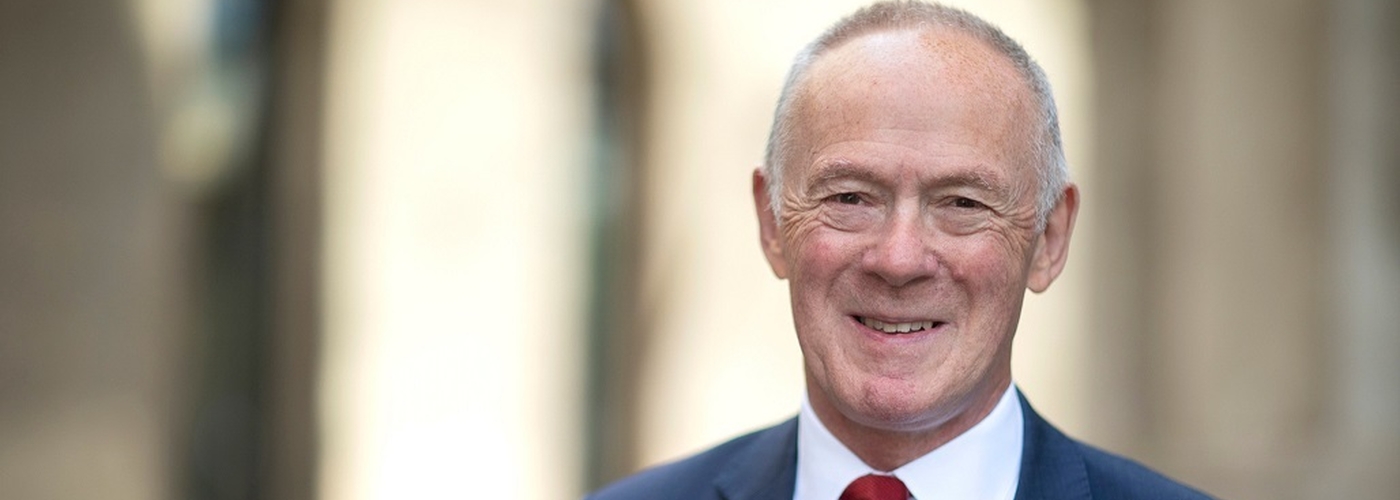Jonathan Schofield with a long read conversation with Manchester's political boss
This is a long article but we feel it provides a real insight into Manchester city council's long-serving leader, Richard Leese.
We've put the various subjects discussed under different headings so you can choose whether to read it all or in sections. Many of the questions for Leese sent in by readers were chosen to lead the topics examined in the interview.
A generational leader
Sir Richard Leese (SRL) smiles with contempt at some of the criticism he faces from his own side of politics. He’s found a box in which to place many of those critics and it’s labelled: “The sectarian left,” he says. “The sectarian left is about as left-wing as my right foot but they are very sectarian, they’re good at that.”
SRL has a fine turn of phrase. He’s not a politician who dissembles or fails to answer a question, nor is he liable to hold back with replies. He can be robust, blunt even. He gives good value in an interview.
There was a reason for our meeting in his Town Hall Extension office earlier this year. SRL had just passed a milestone in his Labour Party career. He’d just completed 25 years as Council Leader of Manchester. Think about that, 25 years. That’s a whole generation, from the time a child is born to them leaving higher education plus a year or two.
It's an extraordinary length of time and one which many European politically aware guests I’ve had in Manchester can’t fathom. Most city political leaders over there have fixed terms. Many people in Manchester too, not just within the "sectarian left", can’t understand how the 70-year-old has held onto power and even increased his influence becoming the Deputy Mayor in 2017 to Andy Burnham across Greater Manchester.
After the 2017 attack the city showed a real sense of identity, a cohesion, that I feel wasn’t so strong 25 years ago. It felt like a city with its pride back
Summing up a quarter of a century in the hot seat
I ask SRL to give an overview as Council Leader over a quarter of a century.
“I suppose I could use the observation I made at the Labour Group AGM when I became leader in 1996,” he says. “Aside from the small matter of the IRA bomb which almost immediately after I’d started devastated part of the city centre, this was still a city in decline. The population was going down year on year and we were closing schools because there weren’t enough kids, skills were leaving, young people had ambitions to get out.
“Of course, by that point, some building blocks had been put in place. We had a City Pride policy, there was the Hulme city challenge, buildings such as The Bridgewater Hall were being completed, yet the city was still, overall in decline.
“In 2020, just pre-Covid the population had been growing at more than 2% year on year for 20 years and, while, we’re not wholly repopulated, we’ve got the opposite problem that for much of the last 10 years we haven’t been building classrooms fast enough. We have no low-demand areas anywhere and we have the opposite, a housing shortage across the city. Some places are more popular than others but where we had instability in district populations we now have stable populations.”
SRL pauses as if looking back down the long years of his tenure.
“The last quarter of a century has been extraordinary, the IRA bomb, Commonwealth Games, austerity, another bomb, COVID. If you look at what’s been happening in this city, they have not been happening in any other comparable UK city, actually in any across Europe. A lot of it has been remarkable not least in terms of the regeneration journey.
“You then get into those questions of what have you really achieved? I think in some ways that was demonstrated by the 2017 Arena bombing. The city showed a real sense of identity, a cohesion, that I feel wasn’t so strong 25 years ago. It felt like a city with its pride back.
“In the eighties when I was first elected (SRL became a Crumpsall councillor in 1984 and remains so to this day) we were down and out, the stuffing knocked out of us. We had to get the idea back that we can do things and when that happens things get done.”
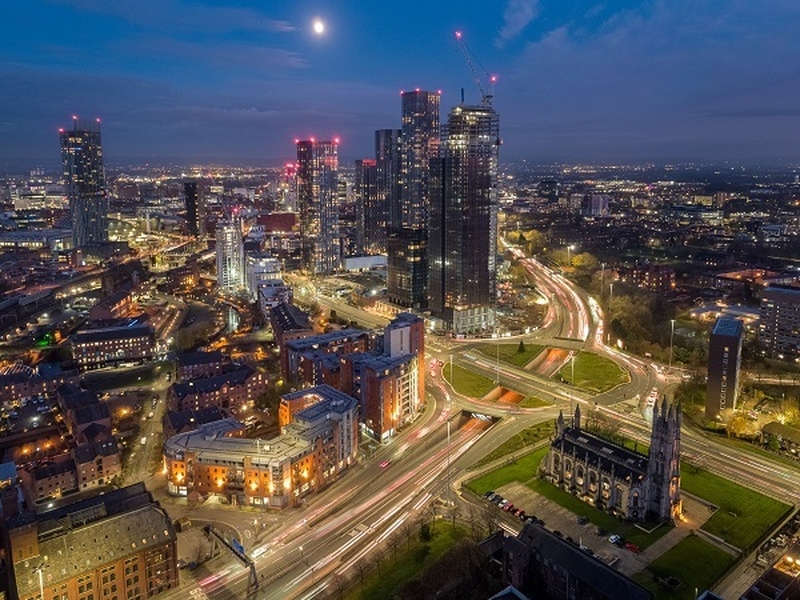
Poverty and education
Certainly, in the eighties, Manchester, as with so many UK big cities, seemed in terminal decline. But by the end of the decade, under Graham Stringer’s time as Council Leader, things were starting to move, Central Manchester Development Corporation was helping old city-centre buildings return to life, the city was bidding for Olympics, public-private partnerships were kicking in.
Yet, I point out, despite all the advances, right now in 2021 Manchester still has terrible indices when it comes to poverty and education, some of the worst in the country.
“I agree we still have massive problems with poverty and deprivation but our kids are more likely to be school-ready,” he says. “Health indices are dire, education isn’t.”
SRL thinks that many of the poverty problems are down to central government policies.
“The central introduction of Universal Credit, benefit caps and so on have really hit us and others hard. And if you had poor indices on poverty before and you were year on year improving that then government policy hit you harder again.”
For SRL the self-evident truth of the impact of central government policy is right there in the statistics.
“Listen,” he says. “We reduced child poverty in the first part of 21st century by around 40%, but it’s now gone up again because of government cuts. Education is different though. Most of our schools are now ‘good’ or ‘outstanding’, it’s a huge improvement.
“Twenty-five years ago over 20% of our adult population had no qualifications or skills now it’s around 7 or 8% which is still far too high but we’re working on it.
“Many of those social indices are overwhelmingly better than they were. Smoking cessation is still lower than the national average but we’ve narrowed that gap. Cancer presentations are more likely to be spotted earlier. I suppose you could say one of the reasons we have a growing population is that young people now want to move here rather than leave.”
Is he claiming too much council influence here? Might some of the improvements come about through national policy or a change in the demographics? What he’s right about, of course, is that either way, the advances have arrived under his tenure.
(Sam Wheeler gave an alternative view in his article on Manchester Confidential about child poverty in 2018.)
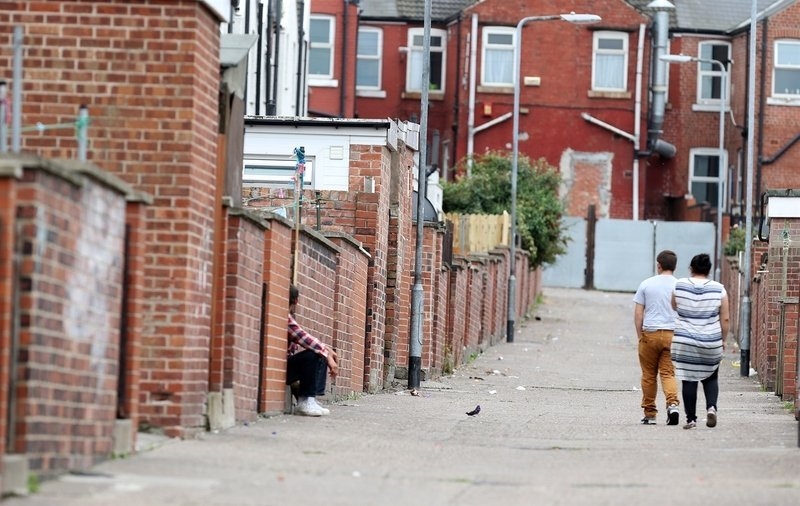
Greater Manchester and Andy Burnham
I ask him about the relationship between the City of Manchester and the other nine boroughs of Greater Manchester and their prospects.
“It’s a mixed picture,” SRL says. “Trafford is doing well, Stockport is in parts. The example from the south east is instructive. The places that have had the most rapid growth rates in the last couple of decades down there are the smaller places, not London. These are places with good transport links with London. That’s looking like a pattern across Greater Manchester now. You have to exploit those links and then improve your centres. Councils have to work hard to turn those centres around.”
SRL returns to the city centre for an analogy.
“When I began as Council Leader in 1996 we were still subsidising through English Partnerships residential development in the city centre. Apartment building did not pay its way. It’s only in the last four years when residential development in the city centre has risen above the borderline of deliverability, the last four years. In 1996 we wouldn’t have imagined Deansgate Square even 15 years ago we wouldn’t have imagined it. In the 25 year period, we’ve had two recessions. These things take time and there’s always the unexpected around the corner.”
Media gossip and city gossip often paints a strained picture of his relationship with the Greater Manchester mayor. How does he get on with Andy Burnham and does the latter have enough executive powers compared to say Sadiq Khan in London?
“I must get on with the current mayor,” he says bluntly, “because, of course, I am the deputy mayor. As for powers, the London mayor has quite a lot of power over not very much. What the entirety of the 32 London boroughs do is separate to what Sadiq Khan does. What we have here is a Combined Authority of the 10 councils with a Greater Manchester Mayor in a one-tier system. So compared to the Mayor of London, the Mayor of Greater Manchester might not have a vast amount of executive power but because of the composition of the Combined Authority, he has greater influence, which I think is a better place to be.
“The mayoral system is about devolution from central government not centralisation up from local councils. So, the local councils have not lost any powers or functions because of that. I think Andy in his second term seems pretty clear that he’s going to concentrate on very clear areas where he has powers such as transport and police. He’s publicly stated what his priorities will be and, I think, that’s right. He’s going to work with councils, it’s a shared agenda because we have to get transport and policing right.”
I recall interviewing SRL around 2009 and he was against many of the models of executive city region mayors at the point. So what’s changed?
“I wrote a paper in 2012 arguing for the current mayoral model as we needed some political capacity at Greater Manchester level that leaders simply didn’t have the time to provide.”
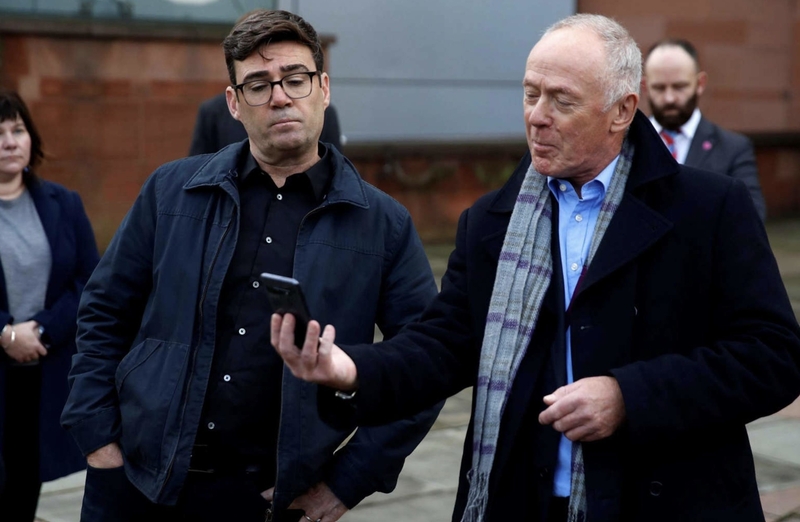
Affordable housing and the 'sectarian left'
I change the subject and turn to affordable housing, especially in the central areas. By the way, affordable housing is defined as shared ownership schemes or those offered at 80% of the market rate.
Should there be a mix of housing in the city centre with more affordable units? It seems a real point of anger with so many people.
SRL leans back in his chair.
“You’ve been mixing with the wrong people,” he says. “There are actually a very small number of vocal people, largely from, what I call the sectarian left who don’t like what we do. They work under various front organisations, like Greater Manchester Housing Action and they even pretend to do some serious research.”
Blunt again. Tough words too. Calling Greater Manchester Housing Action (GMHA), a "front organisation" will get backs up. GMHA are a lobbying and discussion group whose stated aim is "to remake the local political landscape and open up conversations about the ‘right to the city'." SRL clearly doesn’t think much of them and doesn’t mind saying so.
“If you analyse it, virtually everything we’ve done is about meeting a housing need. This has been about working people, not super-rich, there’s a little bit of that, but predominantly city centre accommodation has been about working people, often young. They are the ones being ‘housed’ in what the Evening News describes as 'glitzy' or 'swanky' when actually they are neither, they’re flats. These are mostly good quality because we have good residential standards in this city and increasingly most of it’s well-managed."
Some would quibble over the quality of these flats – The Green Quarter anybody? – and some would stamp their feet over the claims of good management, but SRL has built a head of steam.
“We’ve done a phenomenal amount with extra-care housing over the last few years across the city,” he says. “What we lack and we haven’t done, which is perhaps not all our fault, is provide enough housing, away from the centre. As those empty council estates have filled up and nobody’s moving, we have probably a need, for something like 5000 additional homes. These need to be, in terms of rent level, secure family accommodation at local housing allowance level.”
Affordable housing again, zero sum bollocks and Section 106
There have been clear frustrations over housing for SRL, largely emanating from central government.
“We haven’t been able to do what we want with housing as we need high-level government money and they’ve not been funding that sort of development. They have been funding what they will term ‘affordable housing’ which is predominantly housing for sale and not for rent. That does not meet the needs of a big chunk of our population. We’ve lobbied and argued for it and now there are only two places in the country in London that are building more ‘affordable housing’ than we are.
“Some people would argue developers are pulling the wool over our eyes but we are a developer ourselves so we know exactly how much development costs. That claim is just bollocks. If we’d done what our critics wanted us to do, it wouldn’t have delivered affordable housing, it would have delivered no housing at all, zero. If we’d tried to impose 20% affordability on it, it wouldn’t have happened. We wouldn’t have got 20% affordable housing we would have got nothing.”
SRL is referring to the city council’s own policy that residential developments should include 20% affordable housing. Is the city claiming enough Section 106 payments? These are negotiated between a developer and council to help make new home schemes more attractive to communities, with affordable housing, public realm as well as roads, parks and youth services
“We have used most of the Section 106 payments for public realm because as a council we simply cannot afford to do public realm. We’ve identified public realm as a priority but we also wanted to use payments to make sure we retain distinctiveness in different parts of the city. For example, we’re not allowing late licences in the older part of Ancoats and we’ve kept building heights down, it wouldn’t be right to do a Deansgate Square with its towers up there.”
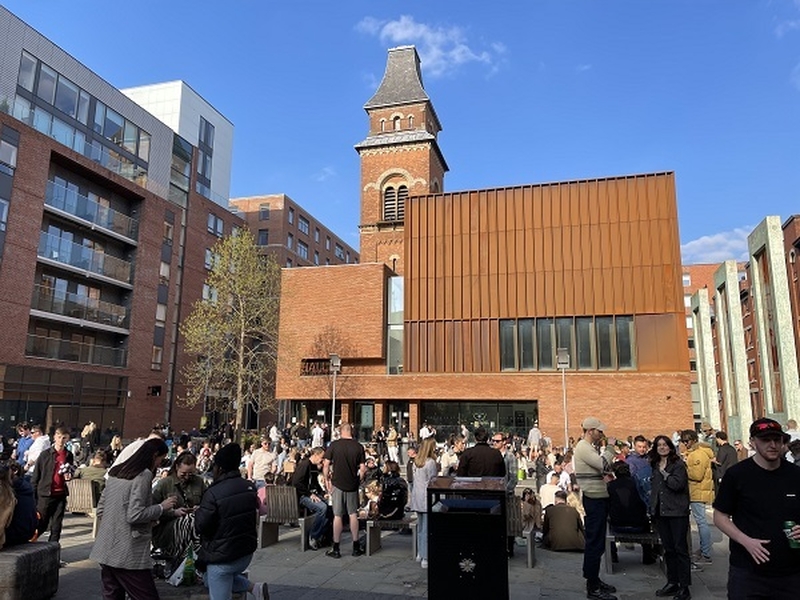
Manchester Life and the 'sectarian left' again
Ancoats and New Islington have several major developments from Manchester Life. This is a joint development venture between the city council and Abu Dhabi United Group. The perhaps over-intimate arrangement has led to fierce criticism locally and nationally. The Times ran an article in 2019 titled: “Manchester, the city that sold out to Abu Dhabi”.
SRL bats this criticism away: “Manchester Life came through central government looking for proposals about how we might do things. When the present owners bought Manchester City, they made a number of commitments. For fans, they would build a decent team, but they would also put even more effort into the City In The Community side of the club, which they have done, and they would contribute to the regeneration of east Manchester, which they have done.
“Just think what they’ve done with the City Academy. They are just about the only club in the land to have their academy in the heart of the city rather than out in the country. And they built that on some of the filthiest land anywhere, the former chemical works of Clayton Aniline. They have placed the headquarters for a global group, City Football Group, there and they employ 300-400 people on that site.
“As for Manchester Life. It's very easy to look at Ancoats now, just think of the place five years ago and compare it. Why it’s different is through that joint venture with Abu Dhabi United Group and the council. We’ve been able to bring forward, in my view, quality development at a scale that’s allowed communities, facilities and amenities to develop. And it’s not all bars and restaurants, it’s bakers and convenience shops.
“The reason that’s happened is the ability to do it at scale which means we’ve provided homes for over 1000 people and we’ve transformed a post-industrial desert into one of the most desirable urban places to live in the country. That’s what’s been achieved with the relationship.”
He smiles and says: “If an over-intimate relationship has produced one of the most distinctive and best places in the country we could do with a few more of them.”
The answers ignore the dubious human rights record of Abu Dhabi. I press him about the claims from certain parties that he’s profiteering from his personal relationship with the Abu Dhabi United Group, getting cash and favours in other words. He laughs and uses that line quoted in the opening paragraph of this article.
“That’s coming from the sectarian left again. The sectarian left is about as left-wing as my right foot but they are very sectarian, they’re good at that. Let’s be very clear. I am on the board of Manchester Life and I get paid nothing, zero. Oh and for that matter I am on the board of the Manchester Airport Group and I get paid nothing, zero.”
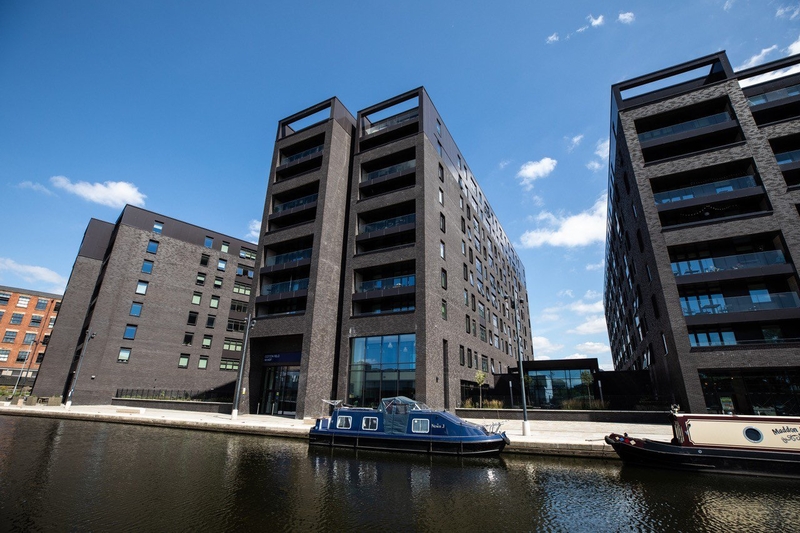
Trees Not Cars and the opinions of 'actual residents'
I ask about the mistake over the Great Ancoats Street car parking farrago. That’s when the city council lost out to a campaign called Trees Not Cars. That looked bad, didn’t it? I say. It was seen as a classic case of an arrogant council not listening to its citizens.
“Was it?” says SRL. “The main argument seemed to be, why are you building another car park to which we answered we’re not building a car park, it’s been a car park for 30 years. All we’re doing is proposing people should pay to park there and deliver some revenue rather than park there for free. The court decision was bizarre. Clearly, the expert advice we got was wrong in law.
“Earlier this year before the council elections I spent some time campaigning in Ancoats. Do you know what the biggest problem the actual residents of Ancoats, the ones who lived there, raised? It was car parking, providing community car parking on Great Ancoats Street would have been really popular. Notwithstanding the campaigning of Trees Not Cars (and I think one of the leaders lives in Worsley now) in May we won that ward seat overwhelmingly. The judgement on the car park did not reflect popular opinion in that area. People wanted commuter cars off their streets.”

Purpose-built student accommodation and changing plans
Another area of controversy for citizens is Purpose Built Student Accommodation (PBSA). The rise and rise of towers along Oxford Road and in Macintosh Village has been rapid. The latest permission given for what campaigners call The Tombstone has simply added to the debate as the balance between student residents and other residents has now become totally lopsided.
“We are operating to a Strategic Regeneration Framework (SRF) from 2012,” SRL says. “That’s our statutory bit of the plan but that’s out of date and it doesn’t reflect the reality we are in, and SRFs shouldn’t be rigid.
“If you take student housing what the local plan says is, first of all, there is a preference now for PBSA. By and large, that’s what students want and it’s much easier to manage. We get a lot fewer issues in all sorts of ways from the PBSAs than we get elsewhere such as in the housing and accommodation around Fallowfield Brow in all sorts of ways. The newer policy says housing should be closer to the universities or on good transport routes. Residents around Macintosh Village don’t want student housing and think the character of the area has changed, but of course, that will always happen. Cities don't stand still.
“It’s a major issue,” he continues, “that PBSAs don’t pay business rates and council tax and that needs to change. We used to get compensation from national government for that loss of potential revenue and we don’t anymore. That really needs to be sorted at national level.
“Still, we get a lot of pluses from students being in the city. The universities are prime economic generators in themselves and part of how we get the talent pool that keeps our economy ticking over. The students spend in the city and they help out with part-time employment. Students make a real contribution and they have to be housed somewhere.”
SRL changes tack and it's easy to see he feels this is an important point. “While the city centre is economically important - it’s one-fifth of all the jobs in Greater Manchester and it’s where 40% of the job growth is occurring. Yet even with 25,000 people, say, living there, that’s less than 5% of the population. The media are obsessed with the city centre but most of our council time is spent on the other bits of the city.”
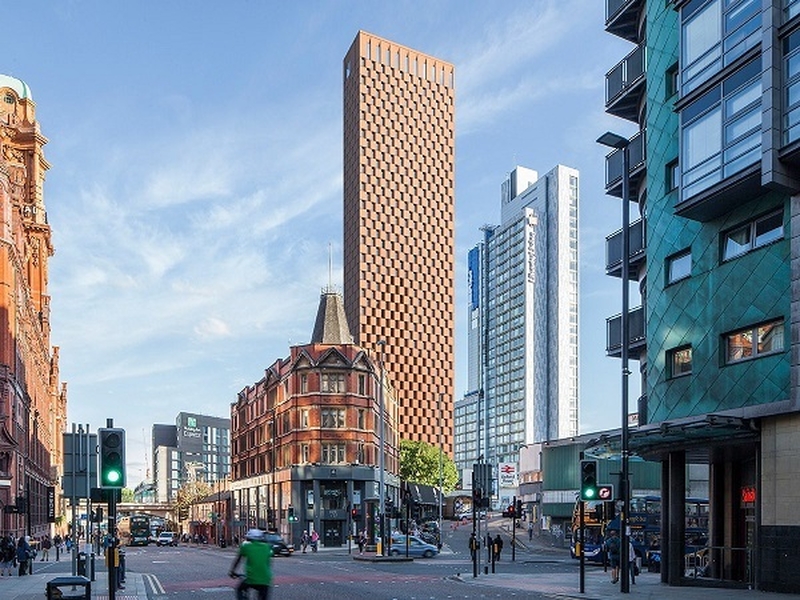
The big regret: safeguarding children
Before we move on to the future and his position, I ask if he had one regret that sticks in his mind from his 25 years in charge, and if so, what would it be?
“That was when we realised there was something fundamentally wrong with one of our services,” SRL says, his voice the very measure of trouble, a chink in that defiant armour showing. “We discovered 15 or 16 years ago that our children’s services were dreadful. Evidence showed safeguarding was nowhere near where it should have been. When that Ofsted report came out it was clear that things were being hidden and we were being told things were great when it was as far from great as you can get.”
“It almost makes you feel powerless. Some people try to imagine leaders of councils control everything and take all the decisions. That’s impossible. councils are too big, too complex. You need lots of other people making decisions too. You can never know everything.”
The ignored grooming of children and a generally poor performance once plagued Manchester's children's services. A more recent Ofstead report praised the service.
So when will Sir Richard Leese stand down?
So, what about Sir Richard Leese’s future tenure as Council Leader? Isn’t he a bit knackered by now, tired of all that responsibility? After May’s council election, he was even challenged for the leadership, albeit in terms of the ongoing culture war and identity politics debate. Brand new Hulme councillor Ekua Bayunu ran against him arguing that “white men had carried the burden of power for decades” and it was time for a change.
SRL brushes that aside.
“I wouldn’t take one person as being typical of everyone’s opinions in the Labour Group. If you take this year’s council elections, despite what’s happened to the Labour Party nationally, we had our best ever election results. That’s the real test. The fact one person, a first-time councillor challenged me, led, as several people have indicated, to The Labour Group, giving me an overwhelming vote of confidence - so thank you very much.”
But does he think there’s a risk of becoming stale when you occupy a position for 25 years?
“There is a risk of becoming moribund and stuck in your ways,” he says, “but it has been a perpetual change here and that has been to do with the personalities involved alongside me.
“As one of my former comrades on the council, the late Brian Harrison, who was a Trot in the fifties, said: 'I first got into politics because I wanted to change the world, now I’ve realised it might take a little longer than I first envisaged.' Every time I went for a pint with him he’d seen something or read something that we had to discuss. It’s always something new. Brian was much older than me but I thought as I grow older, I have to be like that.”
So, folks, Sir Richard Leese is staying put for the time being. But is there a succession plan for when he does finally leave the leadership of the city council?
“We can’t do a succession plan because at some point I’ll either go voluntarily or I’ll be taken out, I know which I’d prefer,” he says. “Whichever way I go the Labour Group will elect someone else, there’s no prior anointing. What is clear is when there is a new leader, the leadership of the city will be different.”
Threats and hopes for the city's future
Since he’s going nowhere, what are the challenges for him over the coming years?
“Recovery from COVID will be a three to five year process,” he says. “Pre-Covid we expected there to be a slowing down of residential and commercial development. Coming out of COVID both of them appear to be accelerating. The pipeline is strong.
“More concerning is I think we’re going to have a massive increase with mental health issues. The effect on young people looks to be huge. As an example, think about the two-year-olds who haven’t played with other kids. There has been a lot of developmental damage there that we will take time to recover from. At the other end of the scale, there are some old people like me who can’t wait to get out but there are some old people who are still petrified of leaving their homes. When I talk about recovery it’s that human side where there will be major issues.
“The economy is part of that of course, but the economy I think will bounce back strongly with one medium-term high-risk area: retail. If property owners recognise covenanted long-term lettings have gone and are prepared to take shorter-term lets then there’s hope.”
I ask for a final thought on where the city is now compared to 25 years ago?
He considers a moment and says: “This city has self-confidence and is full of people with ideas. George Osborne, when chancellor, was asked why are you supporting all this stuff in Manchester and he said it’s because Manchester brings me ideas. I think in 2021 that’s part of it along with the fact we are a more diverse, stronger city, a more confident one. The potential is huge.”
He pauses again: “Yet, there’s still a lot of work to be done.”

A steady hand
So, the last question, if our plain-speaking, robust, veteran council leader of Manchester has one big hope for the future, what is it?
This time the answer comes quickly.
“In an ideal world, I’d want us to be a city with no benefit dependency.”
That is indeed a beguiling vision, a city full of people enjoying, earning and contributing. In some ways though, it's a strange answer with Sir Richard Leese moving away from his trademark characteristic.
Such hypotheticals are not normally what he does. Instead, he always comes over as a man who has thought deeply about issues and then made up his mind. That clarity of thought allied to a lively wit and a sharp, sometimes caustic tongue, can lay him open to claims of arrogance.
Of course, you could say it's easy to be the Labour Council Leader in such a staunchly Labour city, but that would ignore the fact of so much recent Labour Party history which is one of conflict and shifting leadership. The "sectarian left" as the norm. There's even been scandal, just look west to Liverpool and Labour's Joe Anderson for some of that.
Twenty-five years at the top of the tree in probably the most influential UK city outside London requires much more than tenacity, it also implies an ability to win people over with argument and after the argument with delivery. In 2021's conspicuously febrile politics such longevity and certainty will lead to resentments. Yet contrast the clarity of tenure of SRL with that of Boris's national government where U-turns and uncertainty come as standard. A steady hand at the tiller and clear navigation suddenly seems a real asset.
Follow Jonathan Schofield on Twitter @JonathSchofield





